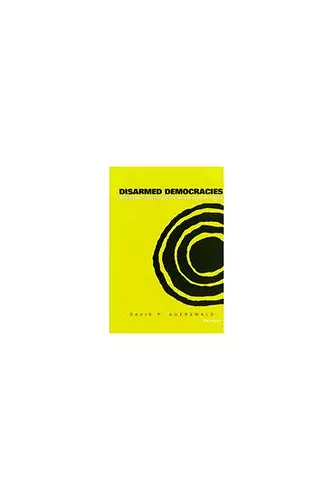Disarmed Democracies
Domestic Institutions and the Use of Force
Format:Hardback
Publisher:The University of Michigan Press
Currently unavailable, our supplier has not provided us a restock date

In Disarmed Democracies: Domestic Institutions and the Use of Force, David P. Auerswald examines how the structure of domestic political institutions affects whether democracies use force or make threats during international disputes. Auerswald argues that the behavior of democracies in interstate conflict is shaped as much by domestic political calculations as by geopolitical circumstance. Variations in the structure of a democracy's institutions of governance make some types of democracies more likely to use force than others. To test his theory, Auerswald compares British, French, and U.S. behavior during military conflicts and diplomatic crises from the Cold War era to the present. He discusses how accountability and agenda control vary between parliamentary, presidential, and premier-presidential democracies and shows how this affects the ability of the democracy to signal its intentions, as well as the likelihood that it will engage in military conflict. His findings have implications for the study of domestic politics and the use of force, as well as of U.S. leadership during the next century.
This study will interest social scientists interested in the domestic politics of international security, comparative foreign policy, or the study of domestic institutions. It will interest those concerned with the exercise of U.S. leadership in the next century, the use of force by democracies, and the future behavior of democratizing nations.
David P. Auerswald is Assistant Professor of Political Science and International Affairs, George Washington University.
ISBN: 9780472111206
Dimensions: unknown
Weight: unknown
216 pages